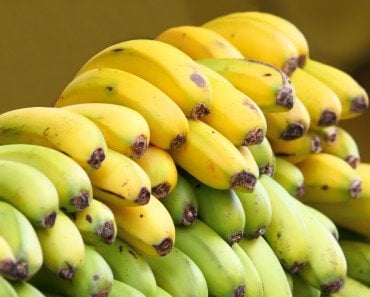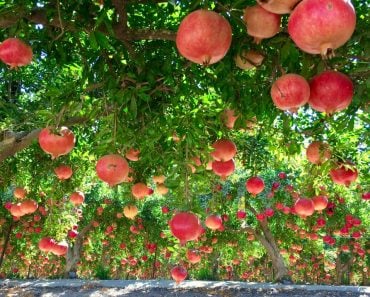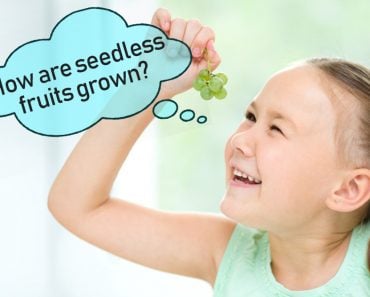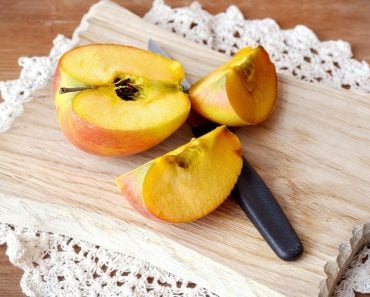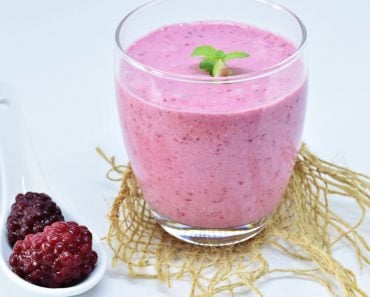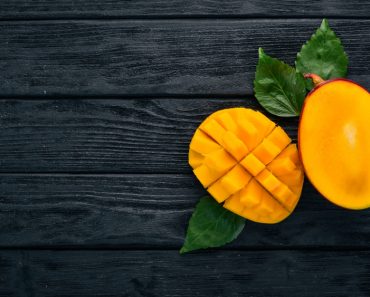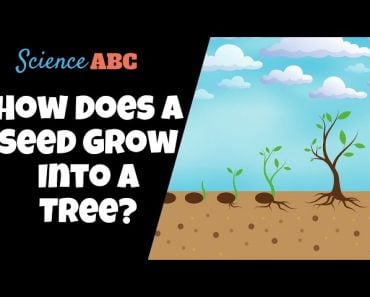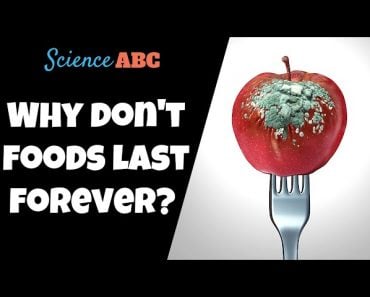Fruits ripen so that they may attract animals to eat them and spread their seeds. Fruits ripen when they absorb moisture, minerals, and other necessary components from the soil. As the fruit grows, its storage cells expand and fill with water, sugars, organic acids, vitamins, and minerals. The fruit’s skin also changes color to become more appealing. Once all these processes are finished, the fruit is ready to eat.
There is no better feeling than enjoying a fruit, in the height of the season, when it’s just perfectly ripe.
Ripeness brings out the best flavours, textures and aroma of the fruits we love. Gorge on the same fruit a week before it’s ripe and you might get a completely different experience altogether!
Tough flesh, more fibres, tastelessness or bitterness are commonly associated with underripe fruit. However, certain fruits, once ripe, tend to spoil quickly and soon acquire a sharp tart flavour, which you might have experienced at some point. All of this might make you dead-set against the taste and the idea of eating that fruit ever again!
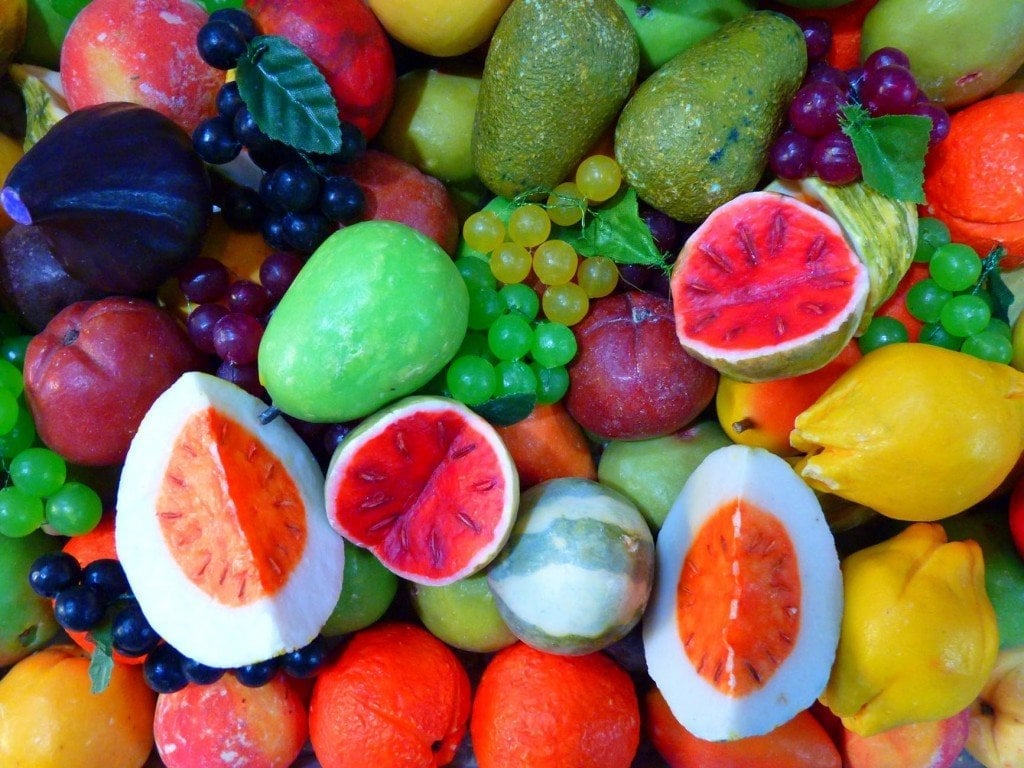
Where did you go wrong?
Timing, my friend. Growing fruits (Pomology) is an art in its own right. You have to time your harvesting period perfectly (if you grow your own, otherwise time your buying from your supermarket). Every fruit has a unique way of ripening. A wrong move here or there, and you might end up damaging the true essence of that fruit, an insult to the forces of nature that came together to help nurture it and bring out the best flavours in your dish.
Recommended Video for you:
Why Are Fruits So Alluring?
Fruits are colourful and flavorful because they want to get eaten! That’s the entire reason for their existence!
Sounds a bit harsh, right? As a matter of fact, for humans and other animals, fruit is something delicious to eat, but for a plant, it’s a means of survival.
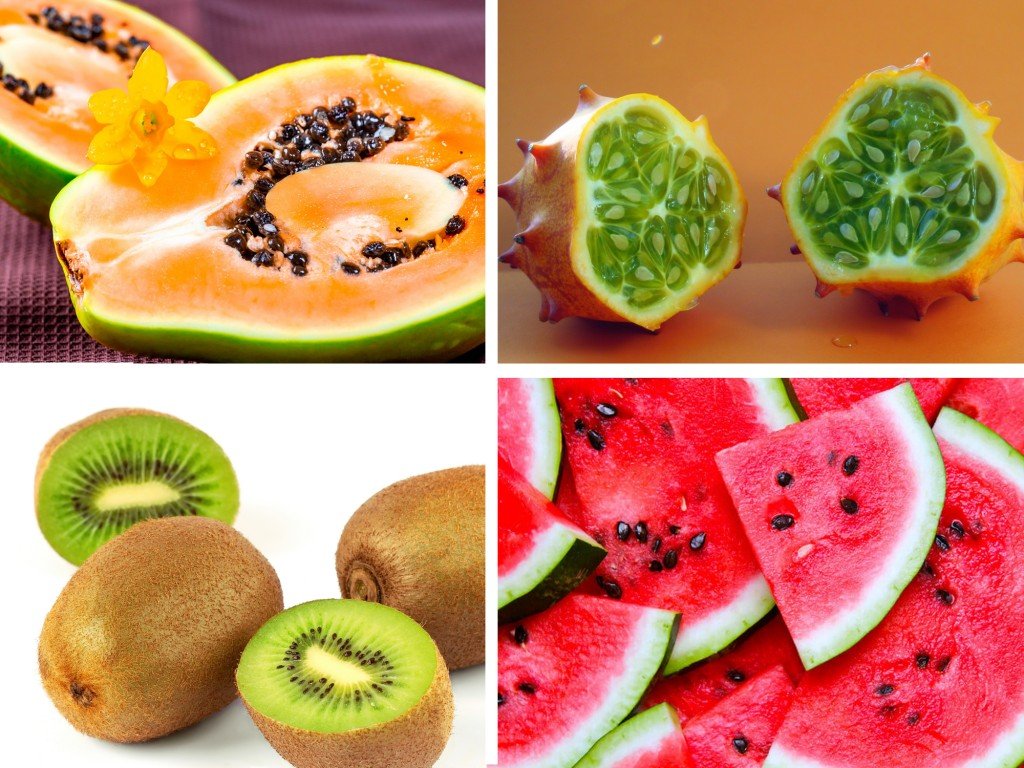
Fruit protect and nourish a plant’s seeds; as the seeds mature, the fruit surrounding them ripens, getting bigger, juicier, sweeter, and more colourful. These changes entice the consumers (humans and other animals) to eat the fruit and, with any luck, drop the seed elsewhere, where it can grow into a new plant. Ripening their fruit is a survival tactic used by plants to help them reproduce and multiply.
What Happens As The Fruit Ripens?
As the plants absorb moisture, minerals from the soil, and all the necessary components for it to thrive, the fruit continues to grow, its storage cells expand, engorging it with water, sugars, starches, organic acids, vitamins and minerals. Its skin turns from green to other appealing colours, such as red, orange or yellow.
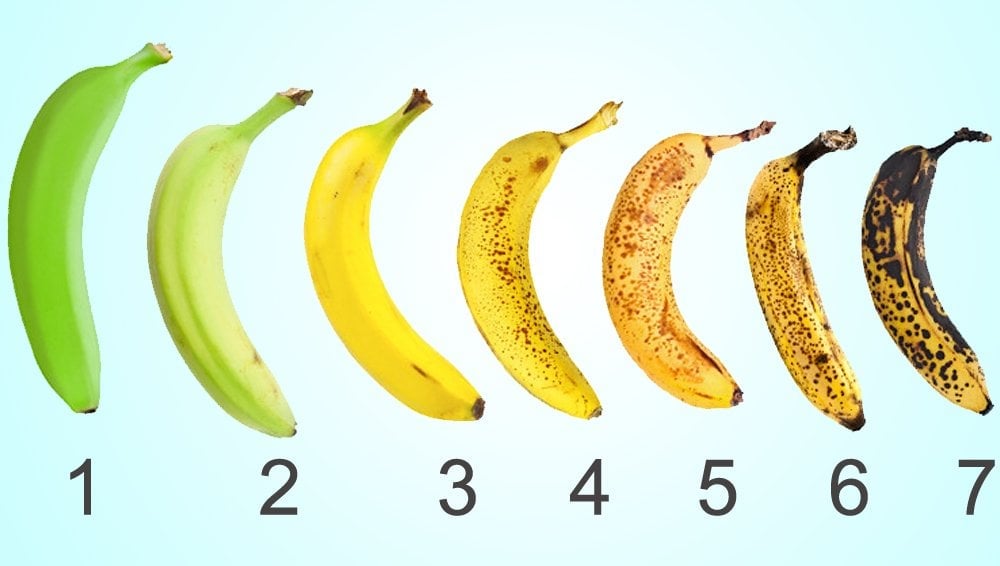
Starch and acid contents decrease, while sugar content increases. Alkaloids and tannins (nitrogenous organic compounds and biomolecules) associated with under-ripe fruits begin to disappear. An aroma develops as the acid and protein composition changes, and the fruit’s texture softens, as the substances that hold up its cell walls start to break down. After all these processes are finished, our fruit is ready to eat.
How Different Are Underripe Fruits From Ripe Ones?
At an early stage in the ripening process, the fruit synthesises compounds, such as alkaloids and tannins. Alkaloids act as a stimulant and can be toxic when ingested. Tannins are biomolecules with anti-bacterial, anti-inflammatory and antioxidant properties.

These compounds fight infections and cause underripe fruit to taste bitter and astringent. Other than this, underripe fruits are more fibrous, less juicy and have tough outer flesh. These adaptations are an essential tool for the plants to ward off eager eaters who might take the fruit and the undeveloped seeds before they’re ready.
Does Fruit Continue To Ripen After Being Harvested?
As mentioned earlier, every fruit has a unique way of ripening.
Certain non-climacteric fruits can ripen fully and develop all their sweetness only while connected to the plant itself. These fruits include berries, melons, grapes, cherries, citrus and pineapples. Once picked, they cannot get any sweeter, because they don’t store their sugars as starches. Since there are no starches to convert to sugars, there is no further ripening. Ideally, these fruits should be picked at the height of ripeness and enjoyed soon after; otherwise, they will begin to deteriorate. Cold storage is widely used to prevent damage and rapid ripening.
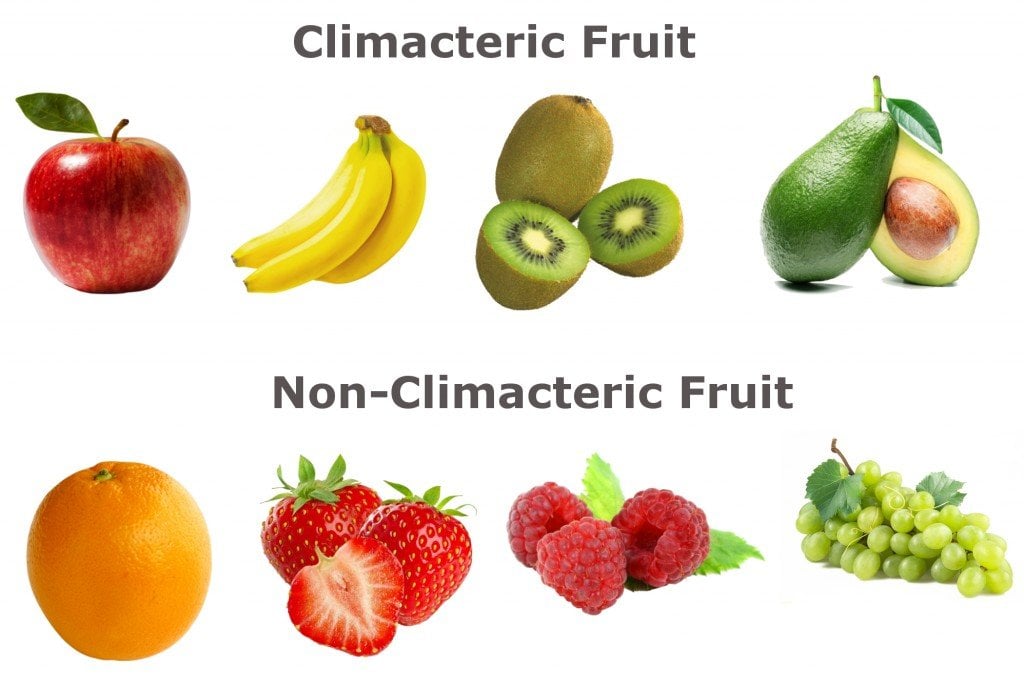
Certain other fruits continue to ripen and develop flavour even after they are harvested. Apricots, bananas, avocados, mangoes, kiwis, pears, peaches, nectarines, persimmons and tomatoes are these types of fruits. These fruits are known as climacteric fruits because there’s a critical period in their development when they ripen through a burst of increased cellular respiration. Climacteric fruit can both retain the ethylene it produces and absorbs additional ethylene from its environment. Ethylene is a hydrocarbon that acts as an ageing hormone in plants.
Artificial Method Of Ripening
With the development of the fruit trade, fruits are now exported to distant lands across the world. Maintaining the perfect level of ripeness is a difficult task, so companies came up with a solution
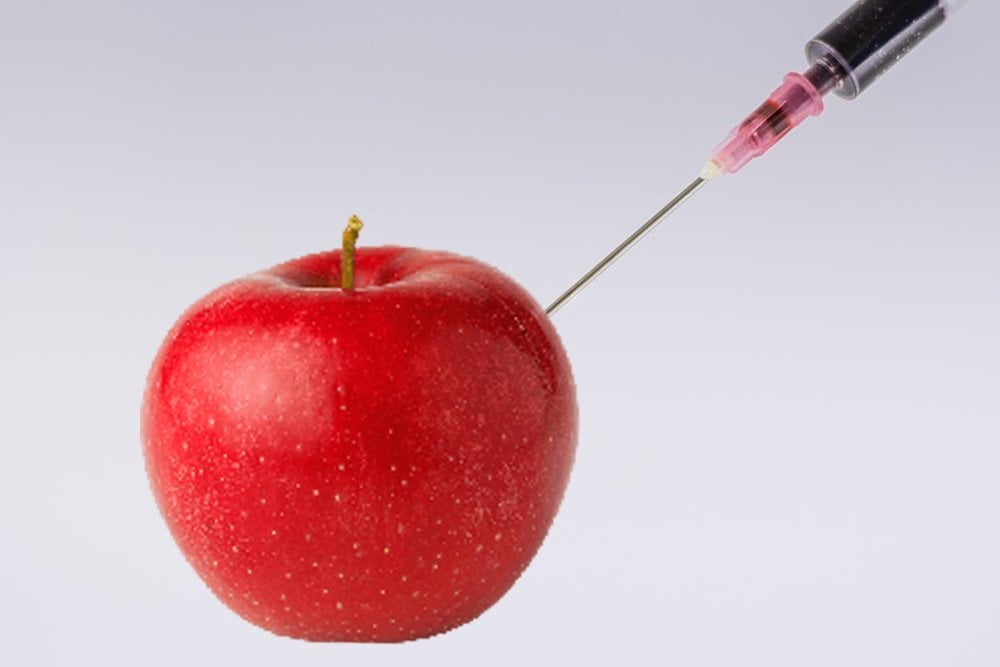
Fruits are picked when underripe and are ripened at their destination markets before going on sale. The most commonly used chemical for artificial ripening is Calcium Carbide, a greyish-white organic compound with a garlic-like odour. When exposed to moisture, it produces acetylene gas (popularly referred to as carbide gas), which is an analogue to ethylene. This quickens the ripening process.
How is it harmful
Acetylene is not nearly as effective for ripening as ethylene; additionally, it is not a natural hormone. Calcium Carbide contains traces of arsenic and phosphorous hydride, which is concerning to some consumers.
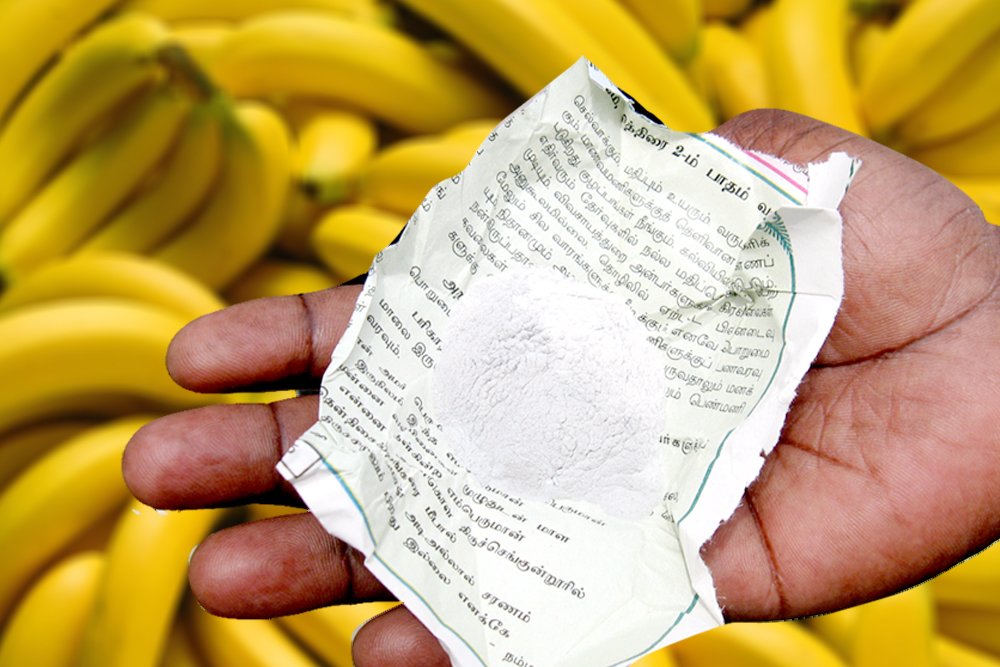
Fruits ripened with Calcium Carbide are overly soft and inferior in flavour. They also have a shorter shelf life. A fruit ripened artificially may develop a uniform, attractive surface colour, but the inner tissues might not turn equally ripe. When Calcium Carbide is used on a significantly underripe fruit, a massive amount of the chemical is needed to ripen the fruit. This results in the fruit becoming even more tasteless, unhealthy and possibly toxic!
References (click to expand)
- Fruit Growth and Ripening - biologie.uni-hamburg.de. The University of Hamburg
- Chemical & Engineering News - Reining In Ripening - pubs.acs.org:80
- The Alkaloids. The Weizmann Institute of Science
- alkaloids - www2.mcdaniel.edu:80
- Fruit Ripening - TNAU Agritech Portal. agritech.tnau.ac.in
- Fruits that Continue to Ripen after Picking | UNL Food. The University of Nebraska–Lincoln

